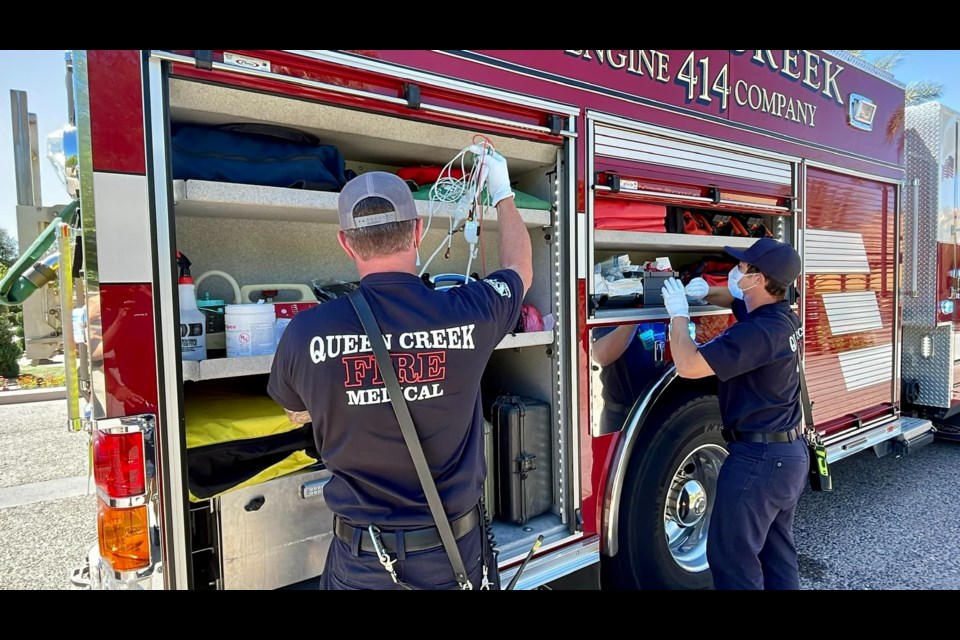It's National Suicide Prevention Week and EMSHelp.org, a non-profit organization committed to advancing suicide prevention among EMS providers, announced recently that its new director of education, Paul Honeywell of Cave Creek, will spearhead the development and dissemination of innovative curricula aimed at empowering EMTs, paramedics, nurses, doctors and firefighters with the tools to navigate the challenges of their profession while addressing critical issues such as resiliency, PTSD and mental health.
“I have witnessed the devastating impact of mental health challenges, including suicides, within our community,” said Honeywell. “The loss of friends and students has been heartbreaking. I’m committed to making a difference in this industry.”
According to a study conducted by the University of Arizona College of Medicine–Phoenix researchers; paramedics, EMTs and firefighters in Arizona have a 39% higher rate of suicide than the general public. In Arizona, on average, there are nine paramedics, EMTs and firefighter suicides per year, likely caused by work stress, exposure to trauma and not wanting to ask for help.
Honeywell wants to emphasize the importance of education in combating mental health challenges. He has crafted three types of curriculum tailored to meet the needs of firefighters, EMTs and paramedics. His programs will be centered around PTSD and resiliency training and will employ sound and video techniques to counter the effects of PTSD. He is committed to working alongside labor unions and other educators to ensure the highest quality of training across the board.
The six objectives for the PTSD lesson are:
-
REMEMBER: Recognizing the main causes, symptoms and impacts of PTSD.
-
UNDERSTAND: Understanding the correlation between traumatic events and the onset of PTSD.
-
APPLY: Applying the knowledge of PTSD symptoms to identify potential cases.
-
ANALYZE: Analyze the differences between normal stress reactions and PTSD.
-
EVALUATE: Evaluate the importance of early detection and intervention for PTSD.
-
CREATE: Create a comprehensive plan outlining available treatment options for PTSD.
Honeywell’s extensive background encompasses a 20-year tenure as a paramedic educator in Arizona, coupled with 17 years as a firefighter and paramedic in Vancouver, Wash. He also served as the deputy chief of EMS operations at the Burning Man festival.
If you or anyone you know is struggling, visit EMSHelp.org’s resource center at emshelp.org/



